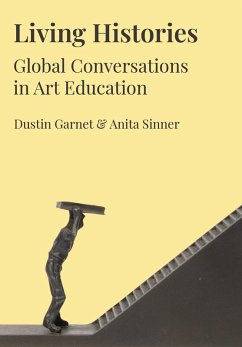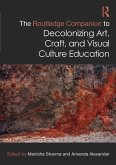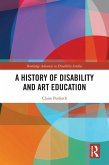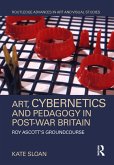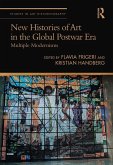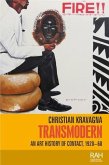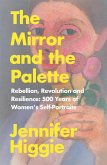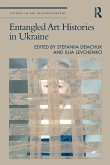Living Histories is a collection of new scholarship that explores histories of art education through a series of international contexts. The first truly international text highlighting histories of art education, with contributions from over 30 scholars based in 18 countries.
Art education holds an important role in promoting historical awareness of the multiple relations that connect pedagogic inquiry with culture, heritage, place and identity, locally and globally. To keep pace with the movements of art and society, Garnet and Sinner consider that art education requires more inclusive and holistic versions of history from transnational perspectives that break down barriers and cross borders in the pursuit of more informed and diverse understandings of the field. The broad focus of this edited collection is to provide both new perspectives of art education from around the world, and to introduce transnationalism into the field as a way to conceptualize the entanglements of historical research in our globalized age. Transnational histories of art education focus on the linkages and flows that shift focus away from the nation-state to other transnational actors such as individuals, communities, institutions and/or organizations.
Contributions from scholars and educators based and working in Australia, Austria, Brazil, Canada, Colombia, Croatia, Czech Republic, Finland, India, Iran, Japan, Malta, South Africa, Spain, Trinidad and Tobago, UK, USA and Zimbabwe.
Includes chapters that adapt an approach of 'artwork histories' to explore the legacies of art education as an anticipatory mode of historical thinking and practice across the visual arts and sites of art education. The book offers an opportunity for authentic engagement and intellectual risk, which includes the rejection of 'correct' interpretations of historical problems. As active agents, art education historians are not passive collectors of the past, but engaged in new ways of doing history predicated on cultivating stories that move beyond representation to attend to aesthetic dimensions that bridge historiography, material culture, oral history, art history and teacher education. Living Histories provides an interpretation of historical thinking and consciousness through the interrelations of time and space to provoke critical and creative practices in education.
This is the latest book in the Artwork Scholarship series, which aims to invite debate on, and provide an essential resource for transnational scholars engaged in, creative research involving visual, literary and performative arts.
With contributors from 18 countries, this book will have a substantial international readership among art educators and those interested in the history of art education, primarily in universities and colleges. It will also be particularly useful for graduate students.
It will also appeal to scholars in arts education more broadly - music education, dance education, theatre education scholars, cultural and art historians, art theorists, international educators, and curators.
Art education holds an important role in promoting historical awareness of the multiple relations that connect pedagogic inquiry with culture, heritage, place and identity, locally and globally. To keep pace with the movements of art and society, Garnet and Sinner consider that art education requires more inclusive and holistic versions of history from transnational perspectives that break down barriers and cross borders in the pursuit of more informed and diverse understandings of the field. The broad focus of this edited collection is to provide both new perspectives of art education from around the world, and to introduce transnationalism into the field as a way to conceptualize the entanglements of historical research in our globalized age. Transnational histories of art education focus on the linkages and flows that shift focus away from the nation-state to other transnational actors such as individuals, communities, institutions and/or organizations.
Contributions from scholars and educators based and working in Australia, Austria, Brazil, Canada, Colombia, Croatia, Czech Republic, Finland, India, Iran, Japan, Malta, South Africa, Spain, Trinidad and Tobago, UK, USA and Zimbabwe.
Includes chapters that adapt an approach of 'artwork histories' to explore the legacies of art education as an anticipatory mode of historical thinking and practice across the visual arts and sites of art education. The book offers an opportunity for authentic engagement and intellectual risk, which includes the rejection of 'correct' interpretations of historical problems. As active agents, art education historians are not passive collectors of the past, but engaged in new ways of doing history predicated on cultivating stories that move beyond representation to attend to aesthetic dimensions that bridge historiography, material culture, oral history, art history and teacher education. Living Histories provides an interpretation of historical thinking and consciousness through the interrelations of time and space to provoke critical and creative practices in education.
This is the latest book in the Artwork Scholarship series, which aims to invite debate on, and provide an essential resource for transnational scholars engaged in, creative research involving visual, literary and performative arts.
With contributors from 18 countries, this book will have a substantial international readership among art educators and those interested in the history of art education, primarily in universities and colleges. It will also be particularly useful for graduate students.
It will also appeal to scholars in arts education more broadly - music education, dance education, theatre education scholars, cultural and art historians, art theorists, international educators, and curators.
Dieser Download kann aus rechtlichen Gründen nur mit Rechnungsadresse in A, D ausgeliefert werden.

